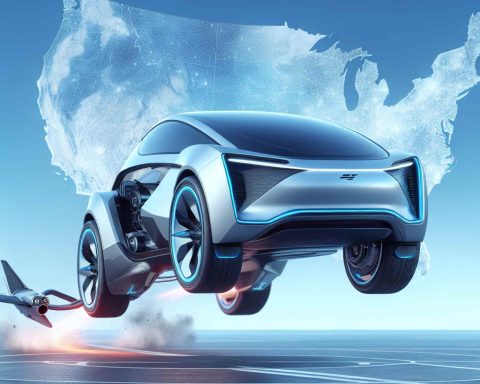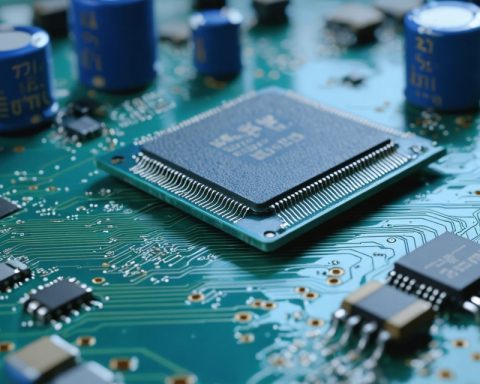Foxconn, widely known as Apple’s main manufacturing partner, has long been synonymous with iPhone assembly at its facilities in China. Recently, however, the tech giant has been making significant moves to expand beyond its traditional role, venturing into new industries such as electric vehicles and robotics.
Reports have surfaced indicating that Apple is planning to have its partner in India assemble the high-end models of the upcoming iPhone 16 series. This strategic shift could potentially signify a broader trend of overseas production for Apple and its affiliates.
While Foxconn continues to play a key role in iPhone production, including plans for overseas assembly, the company is also actively seeking new revenue streams beyond Apple. In a recent development, Foxconn announced a strategic partnership agreement with the Henan provincial government to accelerate the implementation of new business projects. The agreement focuses on Foxconn’s “3+3” strategic industries, highlighting sectors such as electric vehicles, digital health, and robotics, as well as emerging technologies like artificial intelligence and semiconductors.
Foxconn’s commitment to diversification is further underscored by its investment in a new business headquarters building in Zhengzhou, with an estimated total investment of around 1 billion RMB. The company is actively positioning itself in the aviation economic zone in Zhengzhou, focusing on projects such as the establishment of an electric vehicle prototyping center and solid-state battery development.
In light of these endeavors, Foxconn’s foray into the electric vehicle industry in Henan marks a strategic shift towards bolstering its presence in the domestic automotive market. Simultaneously, the company’s focus on robotics, exemplified by the recent establishment of the Central Plains Intelligent Manufacturing Research Institute in Zhengzhou, underscores a broader commitment to automation and technological innovation.
Innovative Expansion Initiatives by Foxconn Unveiled
Foxconn, a tech manufacturing giant renowned for its association with Apple, is making impressive strides beyond its traditional iPhone assembly. While the company’s involvement in Apple’s upcoming iPhone 16 series assembly is a noteworthy development, Foxconn’s diversification ventures extend far beyond its Apple-centric operations.
One lesser-known fact is Foxconn’s entry into the renewable energy sector, with investments in solar energy projects across various regions. This strategic move positions the company as a key player in the global shift towards sustainable practices.
Moreover, Foxconn’s foray into the medical technology field is gaining momentum, with plans to establish state-of-the-art research and development facilities aimed at advancing healthcare solutions. This expansion aligns with the company’s broader vision of leveraging technology for societal benefits beyond consumer electronics.
Key Questions:
1. How does Foxconn’s expansion into electric vehicles and robotics align with its long-term business strategy?
2. What challenges might Foxconn face in diversifying its investments across multiple industries?
3. How does Foxconn’s shift towards sustainable practices impact its overall corporate image and market positioning?
Answering the Crucial Questions:
1. Foxconn’s diversification efforts represent a strategic bid to reduce reliance on a single revenue stream and establish a robust presence in burgeoning industries such as electric vehicles and robotics. By tapping into these sectors, Foxconn aims to foster innovation and capitalize on evolving market trends.
2. A key challenge for Foxconn lies in effectively managing the diversification process to ensure that resources are allocated optimally across different industries. Balancing investments, talent acquisition, and market penetration in unfamiliar sectors poses a complex operational challenge that requires meticulous planning and execution.
3. Foxconn’s focus on sustainability not only enhances its corporate social responsibility profile but also positions the company as a responsible global player. Embracing renewable energy and environmentally friendly practices can attract eco-conscious investors and consumers while mitigating potential regulatory risks associated with unsustainable practices.
Advantages and Disadvantages:
Advantages:
– Diversification shields Foxconn from over-reliance on a single industry, enhancing resilience against market fluctuations.
– Expansion into new sectors such as renewable energy and healthcare opens up avenues for long-term growth and innovation.
– Strategic investments in cutting-edge technologies bolster Foxconn’s competitive edge and foster cross-industry synergies.
Disadvantages:
– Venturing into unfamiliar industries may entail higher risks and uncertainties, necessitating thorough risk assessment and mitigation strategies.
– Managing a diverse portfolio of investments can strain organizational resources and require effective strategic planning to ensure long-term sustainability.
– Competitive pressures in emerging sectors like electric vehicles and robotics could intensify, challenging Foxconn to differentiate its offerings and capture market share effectively.
For further insights into Foxconn’s dynamic expansion initiatives, visit Foxconn’s Official Website.

















